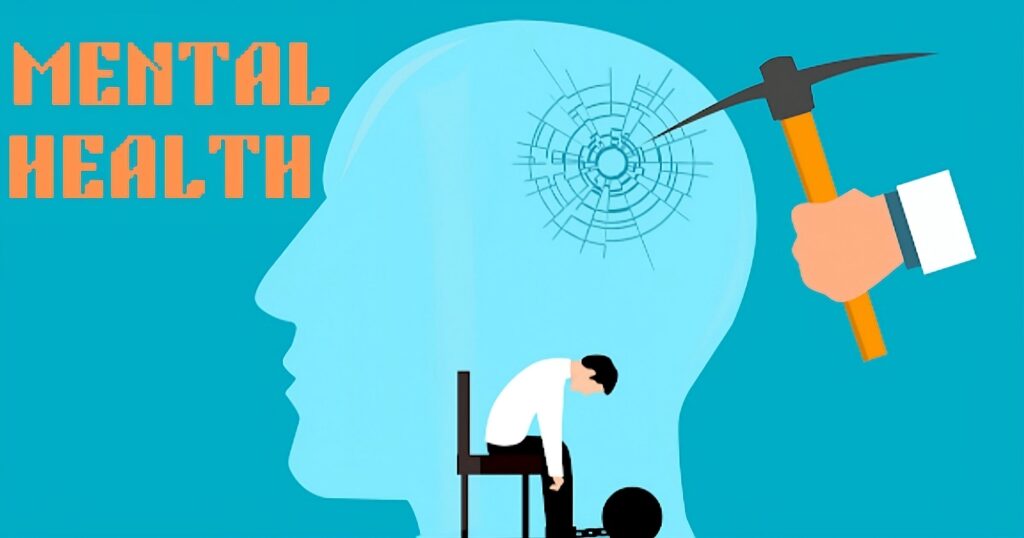Psychological Stress
Psychological stress refers to the negative emotional and physical responses that result from an individual’s inability to cope with the demands of a situation. Stress can be caused by a variety of factors, including work-related issues, financial difficulties, relationship problems, and health concerns. Stress is a common experience, and it is estimated that up to 80% of adults experience stress on a regular basis.
The Effects of Psychological Stress
Psychological stress can have a significant impact on an individual’s health and wellbeing. It can cause physical symptoms such as headaches, muscle tension, and fatigue. Stress can also lead to emotional symptoms such as anxiety, irritability, and depression.
Long-term exposure to stress can increase the risk of developing chronic health conditions, including heart disease, diabetes, and depression. Stress can also weaken the immune system, making individuals more susceptible to infections and other illnesses.
Causes of Psychological Stress
The causes of psychological stress are numerous and varied. Some common causes of stress include:
1. Work-related stress: This can include issues such as a heavy workload, difficult working conditions, and job insecurity.
2. Financial stress: This can include issues such as debt, unemployment, and financial insecurity.
3. Relationship stress: This can include issues such as a breakdown in a relationship, family problems, and social isolation.
4. Health-related stress: This can include issues such as chronic illness, pain, and disability.
5. Life events: This can include major life changes such as divorce, bereavement, and retirement.
Managing Psychological Stress
Managing psychological stress is essential for maintaining good mental and physical health. There are many strategies that individuals can use to manage stress, including:
1. Exercise: Regular exercise can help to reduce stress levels by releasing endorphins, which are natural mood enhancers.
2. Relaxation techniques: Techniques such as deep breathing, meditation, and yoga can help to reduce stress levels by promoting relaxation.
3. Time management: Effective time management can help individuals to prioritize their tasks and reduce feelings of overwhelm.
4. Social support: Talking to friends and family members can help to alleviate feelings of stress and provide a sense of social support.
5. Seeking professional help: If stress levels are severe, individuals may benefit from seeking the help of a mental health professional.
Conclusion
In conclusion, psychological stress is a common experience that can have significant negative impacts on an individual’s health and wellbeing. Understanding the causes of stress and adopting effective stress management strategies can help individuals to reduce stress levels and maintain good mental and physical health.
Frequently Asked Questions About Psychological Stress:
What is Psychological Stress?
Psychological stress refers to the negative emotional and physical responses that result from an individual’s inability to cope with the demands of a situation. Stress can be caused by a variety of factors, including work-related issues, financial difficulties, relationship problems, and health concerns. Stress is a common experience, and it is estimated that up to 80% of adults experience stress on a regular basis.
What is the effect of Psychological Stress?
Psychological stress can have a significant impact on an individual’s health and wellbeing. It can cause physical symptoms such as headaches, muscle tension, and fatigue. Stress can also lead to emotional symptoms such as anxiety, irritability, and depression.
Long-term exposure to stress can increase the risk of developing chronic health conditions, including heart disease, diabetes, and depression. Stress can also weaken the immune system, making individuals more susceptible to infections and other illnesses.
What causes Psychological Stress?
The causes of psychological stress are numerous and varied. Some common causes of stress include:
1. Work-related stress: This can include issues such as a heavy workload, difficult working conditions, and job insecurity.
2. Financial stress: This can include issues such as debt, unemployment, and financial insecurity.
3. Relationship stress: This can include issues such as a breakdown in a relationship, family problems, and social isolation.
4. Health-related stress: This can include issues such as chronic illness, pain, and disability.
5. Life events: This can include major life changes such as divorce, bereavement, and retirement.
What is psychological Stress Management?
Managing psychological stress is essential for maintaining good mental and physical health. There are many strategies that individuals can use to manage stress, including:
1. Exercise: Regular exercise can help to reduce stress levels by releasing endorphins, which are natural mood enhancers.
2. Relaxation techniques: Techniques such as deep breathing, meditation, and yoga can help to reduce stress levels by promoting relaxation.
3. Time management: Effective time management can help individuals to prioritize their tasks and reduce feelings of overwhelm.
4. Social support: Talking to friends and family members can help to alleviate feelings of stress and provide a sense of social support.
5. Seeking professional help: If stress levels are severe, individuals may benefit from seeking the help of a mental health professional.
READ MORE:
I hope this article is helpful to you.
Thanks!

















